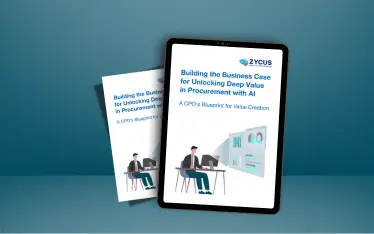TL;DR
- Flexible spend policies for mid-market firms balance control and employee autonomy in hybrid work.
- Hybrid work adds new spend categories like SaaS tools, home office gear, and travel.
- Guided intake and automated approvals reduce delays and compliance risks.
- Real-time budget visibility improves forecasting and financial discipline.
- Mid-market firms cut rogue spend while keeping employees productive.
- CFOs gain compliance and visibility without adding headcount.
Why Hybrid Work Challenges Spend Control in Mid-Market Firms
Traditional spend policies were designed for centralized workplaces. With hybrid and remote work, mid-market firms now face new challenges: employees buying equipment on personal cards, departments choosing SaaS subscriptions without IT oversight, and travel spend spiking unpredictably.
For lean procurement teams, controlling this without slowing employees down is difficult. Too much rigidity frustrates staff; too much flexibility creates compliance risks. Flexible spend policies strike the balance, giving employees autonomy while maintaining budget discipline.
Key Principles of Flexible Spend Policies for Mid-Market Companies
Mid-market firms can modernize policies with a few simple shifts:
- Category-based thresholds: Define who can approve which types of purchases.
- Policy-based automation: Route requests automatically to approvers based on spend limits.
- Employee-friendly intake: Make policy compliance simple with guided request forms.
- Budget alignment: Ensure requests are validated against budgets in real time.
Read more: The Intake Advantage – Why Emerging Enterprises Need Guided Procurement
Benefits of Flexible Spend Policies in Hybrid Work Environments
The right policies enable both speed and control:
- Agility: Employees get what they need without bureaucratic delays.
- Compliance: Purchases stay within policy boundaries automatically.
- Visibility: CFOs see spend in real time instead of after the fact.
- Employee experience: Staff spend less time on paperwork, more on productivity.
Read more: Real-Time Budget Visibility – Tools and Techniques for Emerging Enterprises
How Mid-Market Firms Can Implement Flexible Spend Policies
Mid-market companies should adopt flexible spend policies in a phased way:
- Assess new spend categories created by hybrid work.
- Define approval thresholds by category and risk level.
- Automate policy enforcement using procurement tools.
- Educate employees with clear, simple policy guidelines.
Read more: Change Management for AI Adoption: Preparing Teams for New Tools
The ROI of Flexible Spend Governance for Hybrid Work
Flexible policies do not just improve compliance — they deliver measurable ROI.
- Reduced maverick spend: Fewer out-of-policy purchases.
- Faster approvals: Cycle times shrink as automation handles routing.
- Improved forecasting: Finance gains better visibility into spend trends.
- Stronger supplier leverage: Consolidating approved purchases strengthens negotiations.
Read more: Change Management for AI Adoption – Preparing Teams for New Tools
Conclusion
For mid-market companies, hybrid work has rewritten the rules of procurement. Flexible spend policies provide the balance needed to empower employees while maintaining financial discipline. With guided intake, automated approvals, and budget visibility, lean procurement teams can scale governance without slowing growth.
Ready to see how Zycus helps mid-market firms implement flexible spend policies? Book a demo
FAQs
Q1. What are flexible spend policies for mid-market companies?
Flexible spend policies are modern procurement guidelines that balance employee autonomy with financial discipline, using guided intake, automation, and real-time budget checks.
Q2. Why are flexible spend policies important in hybrid work environments?
Hybrid work creates decentralized purchases like SaaS tools, travel, and home office gear. Flexible spend policies ensure compliance and control without slowing employees down.
Q3. How can mid-market firms implement flexible spend policies?
They can adopt category-based thresholds, automate approvals, align requests to budgets, and provide employee-friendly intake processes to make compliance seamless.
Q4. What ROI do flexible spend policies deliver for mid-market firms?
They reduce rogue spend, accelerate approval cycles, improve forecasting accuracy, and strengthen supplier leverage by consolidating compliant purchases.
Q5. How do flexible spend policies improve employee experience?
They simplify requests with guided forms, reduce paperwork, and allow staff to get the right tools and services quickly while staying within policy.
Related Reads:
- From Chaos to Control: Fixing Vendor Master Data and Rogue Spend with AI
- Strategic Procurement Priorities for 2026: A Mid-Market Survival Guide
- Procurement Analytics for Mid-Market Teams: Turning Data into Action
- Negotiation in Mid-Market Procurement: Blending Human Skills with AI Metrics
- The Adoption Deficit: Solving the Procurement Change Challenge in Emerging Enterprises
- Building Resilient Supply Chains: Risk-Mitigation Strategies for High-Growth Companies
- AP Automation for Emerging Enterprises: Stop Ghost Invoices and Hidden AP Errors
- Why Process Orchestration Matters in Mid-Market Procurement
- RFP Automation for Mid-Market Procurement: Smarter Proposal Evaluation with AI
































































